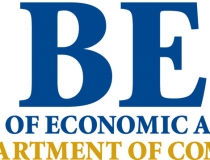If I am a signatory on my employer’s bank accounts, do I need to report that?
FBARs are not tied to FATCA. Congress enacted the Bank Secrecy Act, which is codified in Title 31 (Money and Finance) of the U.S. Code, in 1970. The purpose of the Bank Secrecy Act was to require the filing of reports and the retention of records where doing so would be helpful to the U.S. government in carrying out criminal, tax and regulatory investigations.
One of the most important provisions of the Bank Secrecy Act was Section 5314(a), which provides that:
[T]he Secretary of the Treasury shall require a resident or citizen of the United States or a person in, and doing business in, the United States, to keep records, file reports, or keep records and file reports, when the resident, citizen, or person makes a transaction or maintains a relation for any person with a foreign financial agency.
This statute, and the applicable regulations, suggests that Section 5314 actually has two distinct requirements:
1. Filing FBARs and
2. Retaining certain records related to foreign accounts.
With regard to the former, the relevant regulation (i.e., 31 C.F.R. §103.24) mandates the following:
Each person subject to the jurisdiction of the United States (except a foreign subsidiary of a U.S. person) having a financial interest in, or signature or other authority over, a bank, securities or other financial account in a foreign country shall report such relationship to the [IRS] for each year in which such relationship exists, and shall provide such information as shall be specified in a reporting form prescribed by the Secretary to be filed by such persons.
With regard to the latter, the regulations contain considerable detail concerning exactly who must retain records, what these records must contain, when these records may be discarded, and where the records must be kept. In particular, the pertinent regulation states that:
Records of accounts required by § 103.24 to be reported to the [IRS] shall be retained by each person having a financial interest in or signature or other authority over any such account. Such records shall contain the name in which each such account is maintained, the number or other designation of such account, the name and address of the foreign bank or other person with whom such account is maintained, the type of such account, and the maximum value of each such account during the reporting period. Such records shall be retained for a period of 5 years and shall be kept at all times available for the inspection as authorized by law.
Persons required to file the FBAR:
· US persons (including a Green Card holder, or individual who is treated as a US “resident” due to prolonged physical presence in the US pursuant to the US tax laws) who have ownership or control (for example, signature authority) of foreign accounts with an aggregate value of over $10,000 in the calendar year.
· Please note that a non-US individual, who merely makes a so-called 6013(g) election in order to file a joint tax return with their US spouse, is not treated as a US person for purposes of filing the FBAR.
Foreign (non-US) “Accounts” required to be disclosed:
· Bank, securities, financial instruments accounts
· Commodity futures or options accounts
· Accounts held in commingled funds (mutual funds) and the account holder holds an equity interest in the fund
· Foreign life insurance or annuities with cash surrender value
· Individually owned bonds, notes, stock certificates, and unsecured loans are not “accounts”
Our Opinion
Bank Account Reporting – Title 31, Section 5314 of the U.S. Code and Treasury Regulation 31 C.F.R. section 1010.350 require US Persons (USPs) having a financial interest in, or signature authority over, a securities or other financial account in a foreign country to report such relationship to the Commissioner of Internal Revenue annually (31 C.F.R. § 1010.350(a) (2011)). The regulations define a “financial interest” to include accounts for which a USP is the owner of record or has legal title (31 C.F.R. § 1010.350(e)(1)). This is the case whether the account is maintained for the U.S. person’s own benefit or for the benefit of others. Section 5321 of Title 31 imposes a civil penalty for violation of section 5314 or its implementing regulations (31 U.S.C. § 5321(a)(5) (2012)). As such, based on the above, if an account has more than one signatory, each USP signatory may be required to report them but there are exceptions according to page 7 of the FinCEN114 form instructions. Individuals who have signature authority over, but no financial interest in, a foreign financial account are not required to report the account in the following situations:
I. An officer or employee of a bank that is examined by the Office of the Comptroller of the Currency, the Board of Governors of the Federal Reserve System, the Federal Deposit Insurance Corporation, the Office of Thrift Supervision, or the National Credit Union Administration is not required to report signature authority over a foreign financial account owned or maintained by the bank.
II. An officer or employee of a financial institution that is registered with and examined by the Securities and Exchange Commission or Commodity Futures Trading Commission is not required to report signature authority over a foreign financial account owned or maintained by the financial institution.
III. An officer or employee of an Authorized Service Provider is not required to report signature authority over a foreign financial account that is owned or maintained by an investment company that is registered with the Securities and Exchange Commission. Authorized Service Provider means an entity that is registered with and examined by the Securities and Exchange Commission and provides services to an investment company registered under the Investment Company Act of 1940.
IV. An officer or employee of an entity that has a class of equity securities listed (or American depository receipts listed) on any United States national securities exchange is not required to report signature authority over a foreign financial account of such entity.
V. An officer or employee of a United States subsidiary is not required to report signature authority over a foreign financial account of the subsidiary if its United States parent has a class of equity securities listed on any United States national securities exchange and the subsidiary is included in a consolidated FBAR report of the United States parent.
VI. An officer or employee of an entity that has a class of equity securities registered (or American depository receipts in respect of equity securities registered) under section 12(g) of the Securities Exchange Act is not required to report signature authority over a foreign financial account of such entity –







